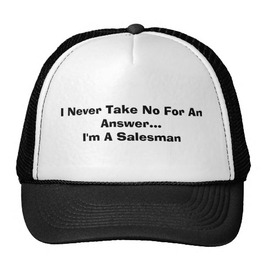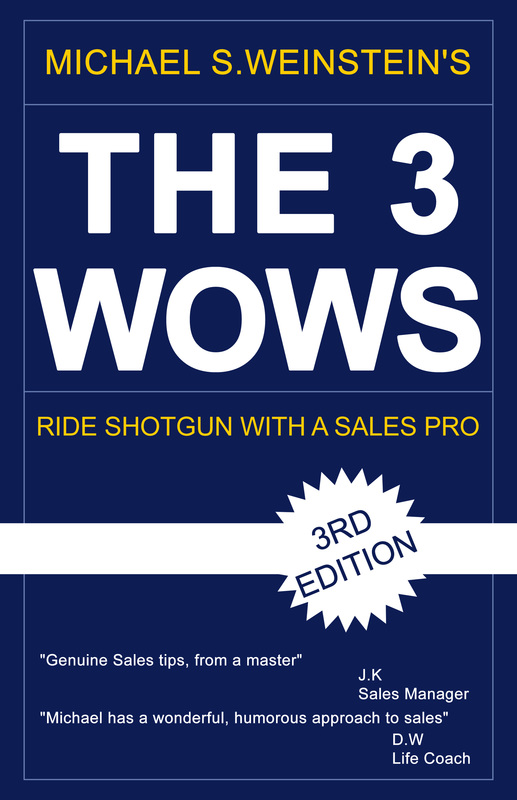
I always heard the adage "That guy doesn't take 'No' for an answer". I always thought that this was the way salesmen should act. Taking a "no" means you are giving up, right?
Wrong.
Taking "no" for an answer and doing nothing with it IS GIVING UP.
Taking a "no", and finding out "why" is your best chance of success in the future. Not every one who I present to is going to buy from me today. The truth is that there are many reasons why someone is not going to purchase my product or service...and that should be OK with me. I have found, however, that most of my long lasting clients said no to me initially. Working through that and working on a long term strategy has been the key to my successes. Today's "no" is not necessarily tomorrow's "no".
Let's back up.
Five things are generally needed for me to make the sale.
- Money: The prospect has to be able to afford my product. If there is no money, there is no sale (or what will turn into a failed sale). For example, a man who is thirsty in the desert cannot possibly buy your water if he has no gold. Even if the need is immense, no money, no purchase.
- Need: The prospect should have some sort of pain, and a need to change that. For example, if your prospect has no need to improve their process, there is a low likelihood for them to stray from the status quo, especially if it costs them money.
- Solution: My product / service has to fulfill that need. Preferably better than anyone else. For example, if your prospect needs a tool to help them complete payroll, then a CRM solution doesn't really cut it, even if it can do a little bit of the payroll.
- Timing: Timing is key. Timing assumes that all the planets are aligned, the resources are in place, and the solution can be used sufficiently. For example, if property tax appeals are performed in the spring, you probably won't get a signed contract in the summer for a property tax solution.
- Decision Maker: Finding the person who can make the decision is a no brainer, right? Often times, I see salespeople talking to the wrong person. In fact, when I ask salespeople why a prospect said no, a common response is that the person ran it by their boss and was given the "Heisman". If your prospect doesn't have the ability to say "yes", then you shouldn't accept a "no"
Not a chance.
When someone says no to me, I ask a couple of questions.
- "When I was showing you the product, we both agreed that it would help you with the payroll issues that you are having. Can I ask what changed?"
- "I understand that you decided to go with XYZ Company. Can I ask what led to that final determination?"
- "I was pretty confident that we would be doing business with you. is there anything that I could have done different?"
- "It seems like the timing isn't right for us to work together. I still haven't given up on you. When should I follow up with you so that we can be a possibility for the next budget cycle?"
- "My product isn't for everybody...I get that. Is there anything that I can discuss with my management that would help us win your business in the future?"
It is the end of the year. In 2014, you got your share of "No's". December is a good time for your prospects to re-evaluate the way they do business.
Before you walk out the door on Friday, place a call into all of your 2014 prospects. Ask them this very important question.
"I am going through my notes on my meetings from 2014, and was wondering why you made the decision to not move forward with us, and is there hope for us doing business in 2015?"
For more helpful tips on sales, check out my book at http://www.salesdog.com/the_3_wows.asp


 RSS Feed
RSS Feed
